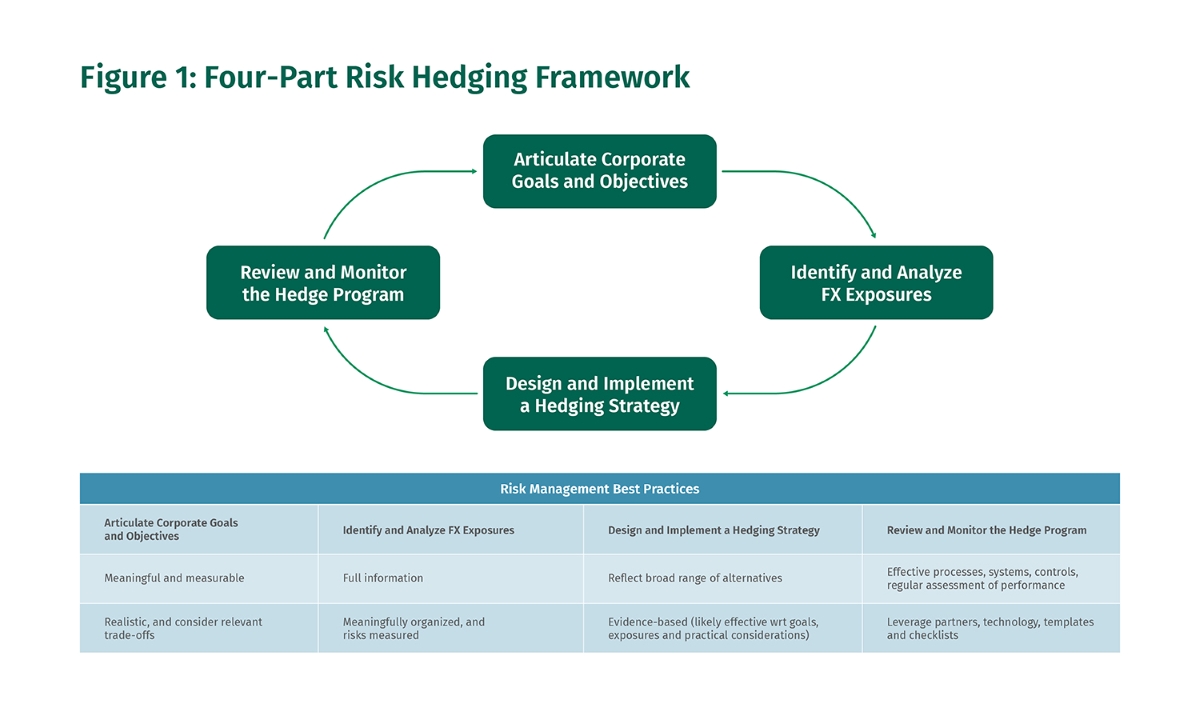Home>Finance>What Should You Not Say To An Insurance Adjuster?


Finance
What Should You Not Say To An Insurance Adjuster?
Published: November 4, 2023
Learn what phrases to avoid when speaking to an insurance adjuster about your finances. Know how to protect your financial interests and secure fair compensation.
(Many of the links in this article redirect to a specific reviewed product. Your purchase of these products through affiliate links helps to generate commission for LiveWell, at no extra cost. Learn more)
Table of Contents
- Introduction
- Denying fault for the accident
- Speculating on the cause of the accident
- Providing unnecessary personal information
- Downplaying your injuries or damages
- Making a recorded statement without legal advice
- Discussing your medical history or pre-existing conditions
- Admitting to prior injuries or accidents
- Agreeing to a quick settlement without reviewing all damages
- Accepting blame or apologizing
- Making statements without fully understanding your policy coverage
- Conclusion
Introduction
When it comes to dealing with insurance companies after an accident, it’s essential to choose your words wisely. Insurance adjusters are well-trained professionals who are skilled at minimizing claim payouts for their company. They may seem friendly and empathetic, but their primary goal is to protect the interests of the insurance company. Therefore, it’s crucial to be cautious about what you say to an insurance adjuster.
Insurance adjusters are trained to ask specific questions designed to elicit responses that can weaken your claim or limit the amount of compensation you receive. They often use your statements against you during the claims process. To ensure a fair settlement, it’s crucial to know what not to say to an insurance adjuster. By avoiding certain statements, you can protect your rights and maximize your chances of obtaining a fair and adequate settlement for your injuries and damages.
In this article, we will discuss ten things you should not say to an insurance adjuster. By being aware of what not to say, you can prevent potential pitfalls and protect yourself during the claims process. Let’s dive into the details to help you navigate conversations with insurance adjusters, ensuring you don’t inadvertently harm your claim.
Denying fault for the accident
One of the most crucial things to avoid saying to an insurance adjuster is denying fault for the accident. It’s understandable that you may want to defend yourself and protect your interests, but admitting fault should be left to the experts to determine.
Insurance adjusters are skilled at gathering evidence and evaluating the circumstances surrounding an accident. If you deny fault without having a complete understanding of the accident’s details or without consulting your attorney, it can have serious consequences. Your statement could be used against you to diminish your claim’s value or even deny it entirely.
Instead of denying fault, it is best to remain neutral and provide only the necessary factual information about the accident. Stick to the facts and avoid speculating or making assumptions about who is at fault. Let the insurance company conduct their investigation and rely on official reports and expert opinions to determine liability.
Remember, anything you say to an insurance adjuster can be used against you, so it is advisable to have legal representation and seek their guidance before making any statements that may affect your claim. They can provide you with valuable advice on how to handle conversations with the insurance adjuster and protect your best interests.
Speculating on the cause of the accident
Another important thing to avoid when speaking with an insurance adjuster is speculating on the cause of the accident. Unless you have concrete evidence or witness accounts supporting your theory, it is best to refrain from making assumptions about what caused the accident.
Speculating on the cause of the accident can weaken your claim and give the insurance company an opportunity to shift liability onto you. Insurance adjusters are experienced in gathering evidence and finding ways to undermine your case. By speculating, you may inadvertently provide them with an opening to argue that your own actions or negligence contributed to the accident.
Instead, stick to the facts that you know for certain. Provide a detailed account of the events leading up to the accident, focusing on what you observed and experienced firsthand. Leave the investigation and determination of the accident’s cause to the professionals, such as the police or accident reconstruction experts.
If you have any doubts or concerns about the cause of the accident, discuss them with your attorney before speaking with the insurance adjuster. They can guide you on what information to disclose and help ensure that you do not harm your claim by speculating or making unsupported claims.
Remember, the insurance adjuster is not on your side. Their goal is to minimize the amount of compensation the insurance company has to pay. By avoiding speculation and sticking to the facts, you can protect your interests and maintain the integrity of your claim.
Providing unnecessary personal information
When speaking with an insurance adjuster, it’s crucial to be mindful of the personal information you disclose. While it’s important to provide the necessary details about the accident, avoid sharing unnecessary personal information that is unrelated to the claim.
Insurance adjusters may try to engage in casual conversation to gather more information about you. They may ask about your employment history, financial situation, or personal life. However, disclosing such information can be detrimental to your claim.
By providing unnecessary personal information, you may unintentionally give the insurance company ammunition to devalue your claim. They could argue that your financial stability diminishes the impact of the accident or that personal issues have interfered with your ability to recover fully.
Stick to the relevant details when discussing the accident. Provide information such as your contact information, policy number, and the basic facts about the incident. Do not discuss your personal life or any unrelated details that could be used against you.
Remember, the insurance adjuster’s goal is to protect the interests of the insurance company, not to serve your best interests. It’s essential to remain cautious and only provide the information necessary to process your claim. If you have any doubts about what information to disclose, it’s wise to seek guidance from your attorney.
By avoiding unnecessary personal information, you can protect the privacy of your personal life and ensure that the focus remains on the facts relevant to your claim.
Downplaying your injuries or damages
When dealing with an insurance adjuster, it is important not to downplay your injuries or damages resulting from the accident. Insurance adjusters may try to get you to minimize the severity of your injuries or the extent of the damage to your property. However, doing so can significantly impact your ability to receive fair compensation.
Insurance adjusters are skilled at finding ways to reduce the value of your claim. If you downplay your injuries or damages, they may argue that your injuries were not as severe as you initially claimed or that the damage to your property was minimal. This can result in a lower settlement offer or even a denial of your claim.
It is crucial to be honest and accurately describe the injuries you sustained and the impact they have had on your life. Provide comprehensive and detailed information about your medical treatment, any ongoing medical care or therapy, and how your injuries have affected your daily activities, work, and quality of life. Similarly, provide accurate and detailed information about the damage to your property.
Remember, insurance adjusters are experienced in negotiating settlements and seeking ways to diminish the value of your claim. By downplaying your injuries or damages, you are essentially giving them a reason to undervalue your claim.
Instead, be thorough and honest in your descriptions. Consult with your healthcare providers to ensure you have a complete understanding of your injuries and the required treatment. Document all medical expenses, receipts for repairs or replacements, and any other relevant evidence to support the extent of your injuries or damages.
By accurately representing the impact of the accident, you increase your chances of obtaining fair compensation for your injuries and damages.
Making a recorded statement without legal advice
One mistake that you should avoid when dealing with an insurance adjuster is making a recorded statement without consulting with an attorney first. Insurance adjusters often ask claimants to provide a recorded statement about the accident, injuries, and damages. While it may seem harmless, this can be a potential trap that can be used against you later in the claims process.
Insurance adjusters are skilled at extracting information that may weaken your claim. They may ask leading questions or try to get you to make statements that can be twisted or misinterpreted. Without the guidance of legal advice, it can be challenging to navigate these conversations and protect your rights.
Before providing a recorded statement, it is crucial to consult with an attorney who specializes in personal injury claims. They can advise you on what to say, what not to say, and help you understand your rights and obligations during the claims process.
An attorney can ensure that your statement aligns with the facts of the case, avoids any potential traps or pitfalls, and protects your best interests. They can also help you understand the impact of your statement on your claim and negotiate on your behalf with the insurance company.
Remember, insurance adjusters are trained negotiators, and their goal is to protect the interests of the insurance company. By making a recorded statement without legal advice, you run the risk of unintentionally providing information that can be used against you and potentially harm your claim.
By seeking legal guidance and having an attorney present during any recorded statement, you can ensure that your rights are protected, and you have a strong advocate on your side throughout the claims process.
Discussing your medical history or pre-existing conditions
When speaking with an insurance adjuster, it is essential to avoid discussing your medical history or pre-existing conditions unless directly relevant to the claim. Insurance adjusters may try to obtain information about your medical background to argue that your injuries were pre-existing or unrelated to the accident.
Bringing up your medical history or pre-existing conditions may give the insurance company an opportunity to downplay the severity of your injuries or deny your claim altogether. They may argue that your current injuries are not a result of the accident but rather a pre-existing condition.
It is important to remember that you have a right to medical privacy, and it is unnecessary for the insurance adjuster to know about your entire medical history. Only provide information about current injuries and their impact on your daily life.
If the insurance adjuster specifically asks about your medical history, it is advisable to consult with your attorney before providing any information. They can guide you on what details to disclose and help ensure that your privacy and rights are protected.
By refraining from discussing your medical history or pre-existing conditions, you can prevent the insurance company from using it against you and focus on establishing a clear link between the accident and your current injuries.
Remember, the insurance adjuster’s goal is to protect the interests of the insurance company, not to prioritize your well-being. Be cautious about providing any personal health information and seek the guidance of your attorney to navigate these conversations effectively.
Admitting to prior injuries or accidents
Admitting to prior injuries or accidents when speaking with an insurance adjuster can have a significant impact on your claim. Insurance adjusters may ask about your medical history or previous accidents to argue that your injuries were not a result of the current accident but rather a pre-existing condition or a separate incident.
It is crucial to be cautious when discussing any prior injuries or accidents. Do not admit to or provide unnecessary details about previous incidents unless they are directly relevant to the current claim. Providing such information can give the insurance company an opportunity to diminish the value of your claim.
Insurance adjusters are skilled at finding ways to minimize claim payouts. By admitting to prior injuries or accidents, the insurance company may argue that your current injuries were not caused by the accident in question, but rather a result of previous incidents.
If the insurance adjuster specifically asks about your prior injuries or accidents, it’s best to consult with your attorney before providing any information. They can help you navigate the conversation and ensure that you are not inadvertently jeopardizing your claim.
Remember, insurance adjusters are not on your side, and their goal is to protect the interests of the insurance company. It is crucial to be vigilant and only disclose information that is directly relevant and necessary for your current claim.
By avoiding unnecessary admissions to prior injuries or accidents, you can safeguard the integrity of your claim and increase your chances of receiving fair compensation for the injuries and damages resulting from the current accident.
Agreeing to a quick settlement without reviewing all damages
One of the mistakes that should be avoided when dealing with an insurance adjuster is agreeing to a quick settlement without thoroughly reviewing all the damages. Insurance adjusters may try to pressure you into accepting a quick settlement offer, especially early in the claims process.
While a fast resolution may seem tempting, it’s crucial to take the time to assess the full extent of your injuries and damages resulting from the accident. Rushing into a settlement without a complete evaluation could mean that you are not adequately compensated for all your losses.
When it comes to personal injury claims, it can take time for certain injuries to fully manifest and for their long-term impact to be determined. By accepting a quick settlement, you may inadvertently waive your right to seek additional compensation for ongoing medical treatments, potential future complications, lost wages, or pain and suffering.
Before accepting any settlement offer, it is advisable to consult with an attorney who can help you evaluate the full range of damages and assess the fairness of the proposal. They can review your medical records, consult with experts if necessary, and provide guidance on the appropriate amount of compensation you should seek.
Remember, insurance adjusters are often incentivized to settle claims quickly and for the least amount possible. By agreeing to a quick settlement without reviewing all damages, you may be leaving valuable compensation on the table.
Take the time to gather all necessary documentation, including medical bills, property repair estimates, and other relevant evidence. Allow professionals to thoroughly evaluate your injuries and damages before making any decisions. By doing so, you can ensure that you receive fair compensation that adequately reflects the full extent of your losses.
Accepting blame or apologizing
One crucial mistake to avoid when dealing with an insurance adjuster is accepting blame or apologizing for the accident. While it may be in human nature to express sympathy or compassion, admitting fault or apologizing can have severe consequences for your claim.
Insurance adjusters are skilled at extracting statements that can be construed as admitting fault. If you accept blame or apologize, it can be used against you as evidence of liability. The insurance company may argue that your admission of fault releases them from any responsibility for your injuries or damages.
Even if you believe you may have contributed to the accident, it is essential not to admit fault or apologize without a full understanding of all the facts and potential liabilities involved. Fault is a complex legal matter that should be determined by experts and not decided through casual conversations with an insurance adjuster.
Instead of admitting fault or apologizing, focus on providing factual information about the accident and your injuries. Stick to describing what you observed, experienced, and the events leading up to the incident. Avoid making speculative statements or taking blame for the accident.
If the insurance adjuster tries to coax you into accepting blame or apologizing, it is crucial to consult with an attorney before providing any statement. They can guide you on how to handle these situations and protect your rights throughout the claims process.
Remember, the insurance adjuster is not your advocate and may use any statements against you to diminish your claim. By refraining from accepting blame or apologizing, you can preserve your claim’s strength and maintain your position to seek fair and just compensation for your injuries and damages.
Making statements without fully understanding your policy coverage
When communicating with an insurance adjuster, it is crucial to avoid making statements about your policy coverage without fully understanding its terms and conditions. Insurance policies can be complex, and not knowing the specifics of your coverage can have serious consequences for your claim.
Insurance adjusters may ask questions about your policy, such as coverage limits, deductibles, or exclusions. If you provide incorrect or incomplete information, it can be used against you to limit the amount of compensation you receive or even deny your claim altogether.
Before engaging in discussions about your policy coverage, take the time to review your insurance policy thoroughly. Familiarize yourself with the coverage limits, the types of damages that are covered, any exclusions or limitations, and the claims process outlined in your policy.
If you are unsure about any aspect of your policy, it is advisable to consult with your insurance agent or an attorney specializing in insurance law. They can provide you with the necessary guidance to navigate conversations with the insurance adjuster and ensure that you have a clear understanding of your coverage.
When speaking with the insurance adjuster, provide accurate and factual information about your policy coverage. If you are uncertain or have questions about specific provisions, it is better to state that you need to consult your policy or seek advice from your insurance agent or attorney before providing a definitive answer.
Remember, insurance adjusters are trained to protect the interests of the insurance company. They may attempt to exploit any misunderstandings or misinterpretations of your policy to their advantage. By fully understanding your policy coverage, you can effectively advocate for your rights and make informed decisions about your claim.
By avoiding making statements without fully understanding your policy coverage, you can prevent unnecessary complications and ensure that you are pursuing the maximum compensation available under your policy.
Conclusion
Dealing with insurance adjusters can be a challenging task, especially if you are unfamiliar with the intricacies of the claims process. However, by understanding what not to say to an insurance adjuster, you can protect your interests and increase your chances of obtaining a fair settlement for your injuries and damages.
Avoiding statements that can be used against you is crucial when communicating with an insurance adjuster. This includes denying fault for the accident, speculating on the cause of the accident, providing unnecessary personal information, downplaying your injuries or damages, making a recorded statement without legal advice, discussing your medical history or pre-existing conditions, admitting to prior injuries or accidents, agreeing to a quick settlement without reviewing all damages, accepting blame or apologizing, and making statements without fully understanding your policy coverage.
Remember, insurance adjusters are trained professionals who are working to protect the interests of the insurance company. They may try to obtain information or statements that could weaken your claim or minimize the compensation you deserve. It is important to be cautious, seek legal advice when necessary, and provide only relevant and accurate information about the accident and its impact on your life.
Consulting with an attorney who specializes in personal injury claims can be a valuable resource throughout the claims process. They can guide you on what to say, what not to say, and ensure that your rights are protected. With their assistance, you can navigate conversations with insurance adjusters effectively and increase the likelihood of a fair resolution.
Remember to review your insurance policy, gather necessary documentation, and fully understand your rights and coverage. By doing so, you can approach discussions with insurance adjusters confidently and maximize your chances of receiving fair compensation.
By avoiding these common mistakes and being cautious in your communications, you can protect your rights, preserve the integrity of your claim, and work towards obtaining the fair settlement you deserve.














